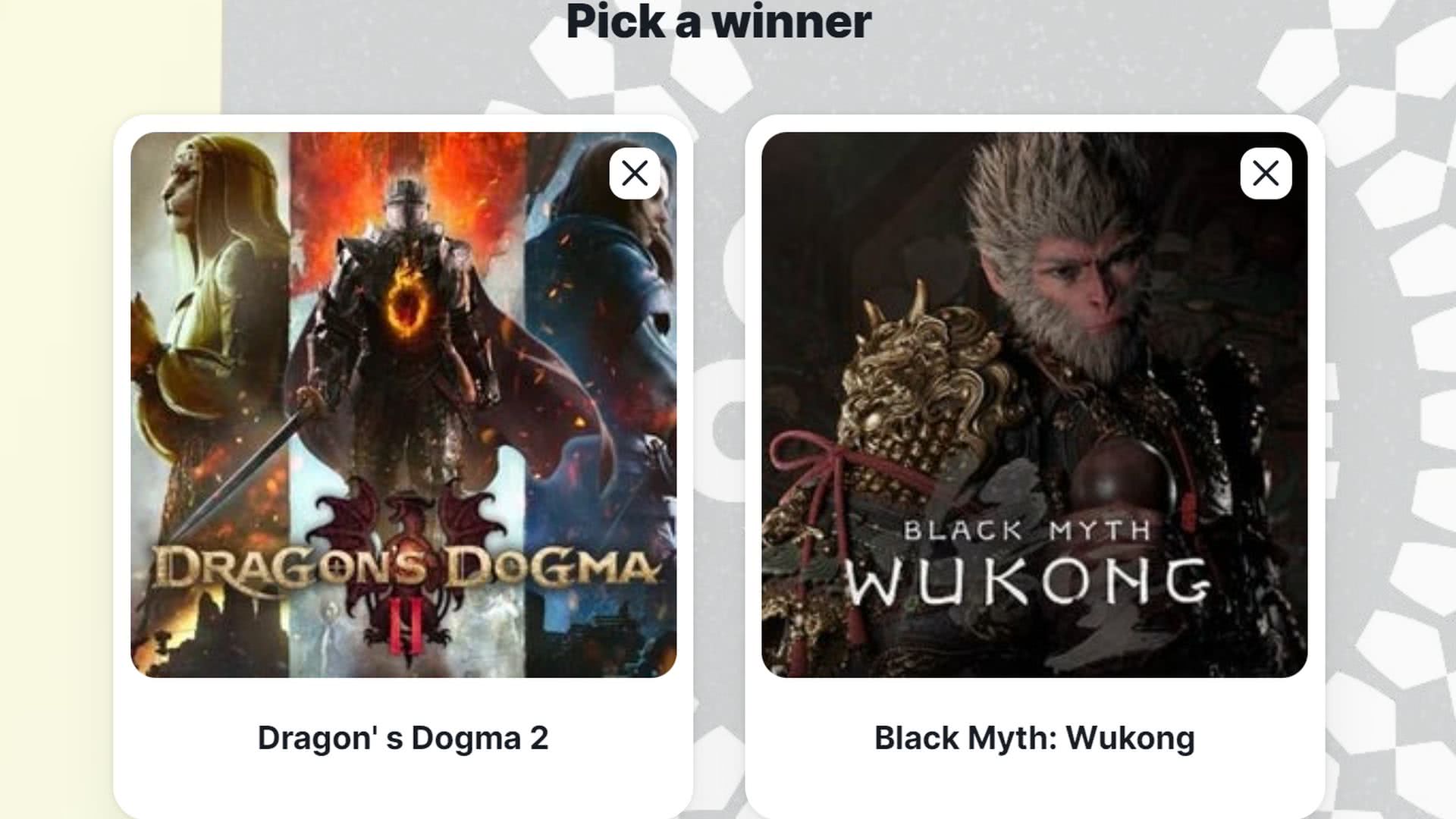This article contains spoilers for the Fallout show on Prime Video.
With uranium fever sweeping the nation, it seems that Fallout is a hit – and the latest data point that proves video game adaptations are good. With the success of the show guaranteed – with favorable reviews piling up and a second season all-but-confirmed – now is the perfect time to engage in a little Monday (Saturday?) morning quarterbacking. So here’s one question that seems to be kicking around social media: why did Prime Video break with its tradition and release the full season of Fallout in a single go?
It’s not a new question. As the premiere date for Fallout inched closer – and Fallout’s April 12 debut turned first into April 11 and then April 10 – the decision to release the season all at once seemed curious. That decision quickly turned shocking as people began to dig into the show. Here is something ambitious and rich and fully capable of sustaining itself on a weekly model – and with some fans, it already risks being yesterday’s news.
Prime Video has certainly proven itself amenable to the weekly release schedule for new franchises in the past, spreading its episodes of The Lord of the Rings: Rings of Power out over seven consecutive weeks in 2022, and following the same model for shows like The Boys, Gen V, Invincible and more. But whether Fallout represents a change in strategy or the uncertainty of a new (to them) IP, I’d like to argue that the easiest way to bring Fallout to the next level for Season 2 is to embrace the weekly release model.
Synchronize the Viewing Experience
Let’s start with an obvious reason: a weekly episode release schedule ensures that fans of all stripes are able to enjoy the narrative at the same pace. Sure, some people sat down and binged Fallout straight through the moment it was released – and there’s nothing wrong with that, it’s a level of franchise dedication that makes any of this possible. But in a crowded media landscape, that kind of viewing experience is far from a guarantee.
The binge model can make sharing your experience with friends and family a little tricky. The people in my life who had the audacity to have children – cutting deep into the time we had previously reserved for obsessing over our shared interests – now move asynchronously, and text threads that could be drumming up our shared excitement for the series are now a quagmire of partial conversations. The specificity of our excitement is relegated to broad conversations about whether the show has been “good” or “bad” so far – hardly the in-depth conversations we were all hoping for.
Audience preferences aren’t what they were a decade ago. While season releases have become something of the standard since the rise of Netflix, there is data that suggests audience preferences are shifting. A 2022 study by Morning Consult suggests that only 14% of Americans try to binge-watch a season in a single day (with 2-3 episodes being the sweet spot). Another study – this one released in 2023 – suggests that shows that release in bulk underperform with new viewers as the season unfolds. If the goal is to expand the Fallout fandom – or at least to explain to your loved ones why you’ve been obsessed with this series for all these years – then a weekly release model is the best way to bring them onboard.
But the ability to synchronize the viewing experience feels especially important when you’re dealing with an adaptation of a long-running series. People are not sitting down to watch Fallout with only the previous episode(s) in mind, and a show written for die-hards and newcomers alike needs to provide a little breathing room for audiences to process what they’ve seen together. I’d love to gush about Dogmeat with people, but since Dogmeat pops in and out of the season like the damn Mysterious Stranger, I’m gonna need a minute for everyone to catch up.
Let the Mystery Breathe
And speaking of “mysterious,” let’s talk about the mystery elements of the show. Strip away the comedic bits and the post-apocalyptic setting and Fallout is not so different from other television mysteries. The show hinges around a missing person, a grand conspiracy theory planned by unknown assailants, and, in the case of The Ghoul, a series of flashbacks with missing gaps of time. Like any good mystery, part of the fun is creating space for the audience to take ownership over the questions you’re asking and allowing them to fill in some of the gaps for themselves.
Before Fallout was released – even while the show was still in production – the internet was abuzz with guesses and hopes for what the first season might introduce. With each new trailer that came out, people had their guesses about the Brotherhood of Steel, the fate of the New California Republic, and whether each offscreen extra was actually a major character from the games. That’s the kind of fun that can only come with not-knowing.
Instead, the binge model subverts subversion. When Lucy MacLean (Ella Purnell) is captured in the basement of Vault 4, her discoveries serve as a narrative red herring: it both implicates the vault in the greater conspiracies of Vault-Tec and leads audiences to think there might be some hidden connection between Vault 4 and Lucy’s home in Vault 33. Imagine how well that ultimate reveal – that Vault 4 is really just home to some of the kindest souls of the wasteland – would’ve worked if online communities had committed themselves to their fan theories.
This is what links shows like Yellowjackets and True Detective: Night Country, both modern-day mysteries that thrived on audience engagement and an abundance of online fan theories. Allowing or even encouraging anticipation around every narrative twist is what turned those shows into a cultural touchpoint; not-knowing is a powerful fandom motivator only if there are real stakes to the eventual narrative reveals, and the best shows know that excitement is most palpable in a crowd.
Delve Deeper Into the World
Weekly releases also give audiences a chance to learn more about the show as it unfolds. Look at how the weekly schedule has benefited X-Men ‘97. Knowing that there will be countless viewers left with the same questions, online publications can build their editorial calendars around the types of things they know people will want to read. This means weekly reviews that provide in-depth analysis, deep(er) dives into narrative influences, and connective tissue from the broader series canon. And when a show really swings for the fences – as X-Men ‘97 did with its second and fifth episodes – this also means giving writers a platform to go even deeper into big character moments.
Fallout has the mythology to justify all those additional write-ups. There is a whole universe of lore to be found in the Fallout games, and moments of narrative importance – such as Lucy MacLean’s somber walkthrough of the Shady Sands memorial in Episode 6 – are opportunities to also bring new generations of Fallout fans up to speed. Not everyone is going to download the first and second Fallout games as homework for the new series, and not everyone will care how Shady Sands canon is upheld throughout the entire series. They just want to know why it matters to the characters they like on the screen.
Little moments of absurdity peppered throughout the series also become fodder for compelling features that offer an added level of entertainment for the audience after the episode is over. I’m sure any fan of the series would’ve loved to turn off Episode 7 and immediately read about the creation of Fred Armisen’s DJ Karl, whose fiddle-heavy broadcasts are so unpopular that he has to boobytrap his station to protect himself from raiders.
Small-but-memorable moments are poor fits for end-of-season coverage – when people are more interested in looking at the path forward for the main narrative – but perfect ways to keep readers engaged on a weekly release schedule. There’s only so many times that Walton Goggins can explain his decision not to play the game before we go looking for more engaging behind-the-scenes stories to enjoy.
Ultimately, if you’re a fan of Fallout, how Prime Video chooses to release their series probably won’t make that much of a difference to you. But the ability of Fallout to reach new audiences – to build momentum, and to create FOMO in the hearts of newcomers – takes more than just a one-day episode dump. That is the difference between being a one-week wonder and the new Hollywood zeitgeist, which opens doors to talent and resources the producers can use to take even bigger swings in future series.
Mostly, though, I just wish audiences had a little bit more time to savor each bite of food on their plate. Fallout is a smorgasbord of ideas and flavors – ranging from comedy to horror and everything in between – and that kind of caloric richness can take a bit to digest. If the reviews are to be believed, Fallout has the potential to be a real appointment viewing title for Prime Video. Maybe it’s time to lean into your own prestige and give the series the release schedule it deserves.







